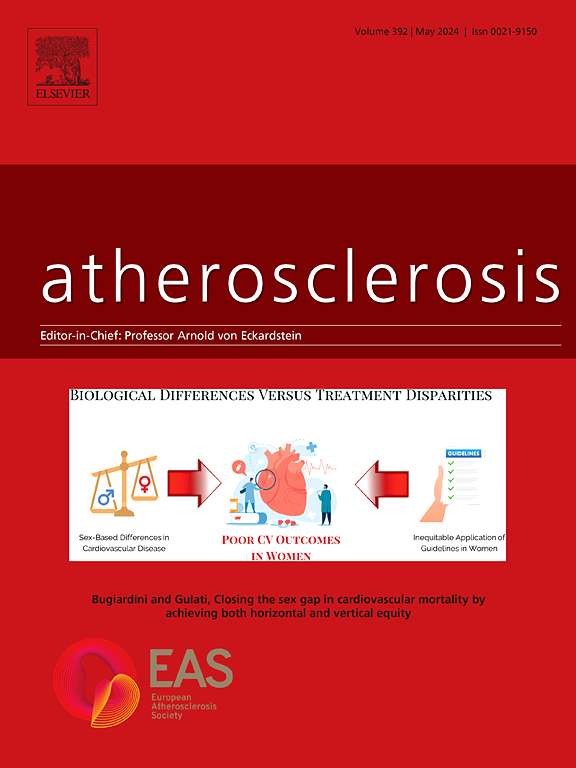欧米茄效应:利用鱼油促进健康。
IF 5.7
2区 医学
Q1 CARDIAC & CARDIOVASCULAR SYSTEMS
引用次数: 0
摘要
最近来自STRENGTH随机临床试验的亚分析结果显示,尽管在更广泛的高风险队列中显示中性结果,但omega-3羧酸在亚洲参与者中显著降低了心血管风险。这些观察结果强调了遗传、代谢和生活方式因素在调节不同种族人群的治疗效果方面的潜在影响。这篇社论提倡从孤立的补充到饮食中整合富含omega-3的食物的范式转变。来自全食物基质的营养物质,如富含脂肪的鱼类(如鲑鱼、鲭鱼)和植物来源(如亚麻籽、核桃),可能会增强浓缩鱼油胶囊所缺乏的生物利用度和协同作用。亚洲亚组的异质性,以年轻、低脂肪和有利的脂质特征为特征,使普遍性复杂化。此外,未测量的混杂因素(如饮食模式、社会经济变量)在推断更广泛人群的结果时需要谨慎。传统的心血管风险模型以成熟的变量(如高血压、血脂异常、吸烟)为中心,而新兴的决定因素——包括慢性炎症、内皮功能障碍和基因组风险评分——正日益补充这些因素。值得注意的是,经典风险因素的人口归因分数下降表明需要多因素、以饮食为基础的预防策略。“欧米茄(Ω)效应”概括了欧米茄-3脂肪酸在全面的心脏健康饮食中发挥最大心血管益处的主张。对于关注初级预防的无症状个体,与单独依赖补充配方相比,接受全食物来源的ω -3可能提供更好的长期效果。本文章由计算机程序翻译,如有差异,请以英文原文为准。
The omega effect: Harnessing fish oil for health
Recent findings from a sub-analysis of the STRENGTH randomized clinical trial reveal that omega-3 carboxylic acids yielded significant cardiovascular risk reduction among Asian participants, despite showing neutral results in the broader high-risk cohort. These observations underscore the potential influence of genetic, metabolic, and lifestyle factors in modulating therapeutic efficacy across ethnic groups.
This editorial advocates for a paradigm shift from isolated supplementation to the dietary integration of omega-3-rich foods. Nutrients derived from whole food matrices—such as fatty fish (e.g., salmon, mackerel) and plant sources (e.g., flaxseeds, walnuts)—may confer enhanced bioavailability and synergistic interactions absent in concentrated fish oil capsules.
The heterogeneity of the Asian subgroup, characterized by younger age, lower adiposity, and favorable lipid profiles, complicates generalizability. Moreover, unmeasured confounders (e.g., dietary patterns, socioeconomic variables) warrant caution in extrapolating outcomes to wider populations.
Traditional cardiovascular risk models centered on well-established variables (e.g., hypertension, dyslipidemia, smoking) are increasingly complemented by emerging determinants—including chronic inflammation, endothelial dysfunction, and genomic risk scores. Notably, the decline in population attributable fractions for classic risk factors signals the need for multifactorial, diet-based prevention strategies.
The “Omega (Ω) Effect” encapsulates the proposition that omega-3 fatty acids exert maximal cardiovascular benefit when embedded within a comprehensive, heart-healthy diet. For asymptomatic individuals concerned with primary prevention, embracing whole-food sources of omega-3s may offer superior long-term outcomes compared to reliance on supplemental formulations alone.
求助全文
通过发布文献求助,成功后即可免费获取论文全文。
去求助
来源期刊

Atherosclerosis
医学-外周血管病
CiteScore
9.80
自引率
3.80%
发文量
1269
审稿时长
36 days
期刊介绍:
Atherosclerosis has an open access mirror journal Atherosclerosis: X, sharing the same aims and scope, editorial team, submission system and rigorous peer review.
Atherosclerosis brings together, from all sources, papers concerned with investigation on atherosclerosis, its risk factors and clinical manifestations. Atherosclerosis covers basic and translational, clinical and population research approaches to arterial and vascular biology and disease, as well as their risk factors including: disturbances of lipid and lipoprotein metabolism, diabetes and hypertension, thrombosis, and inflammation. The Editors are interested in original or review papers dealing with the pathogenesis, environmental, genetic and epigenetic basis, diagnosis or treatment of atherosclerosis and related diseases as well as their risk factors.
 求助内容:
求助内容: 应助结果提醒方式:
应助结果提醒方式:


